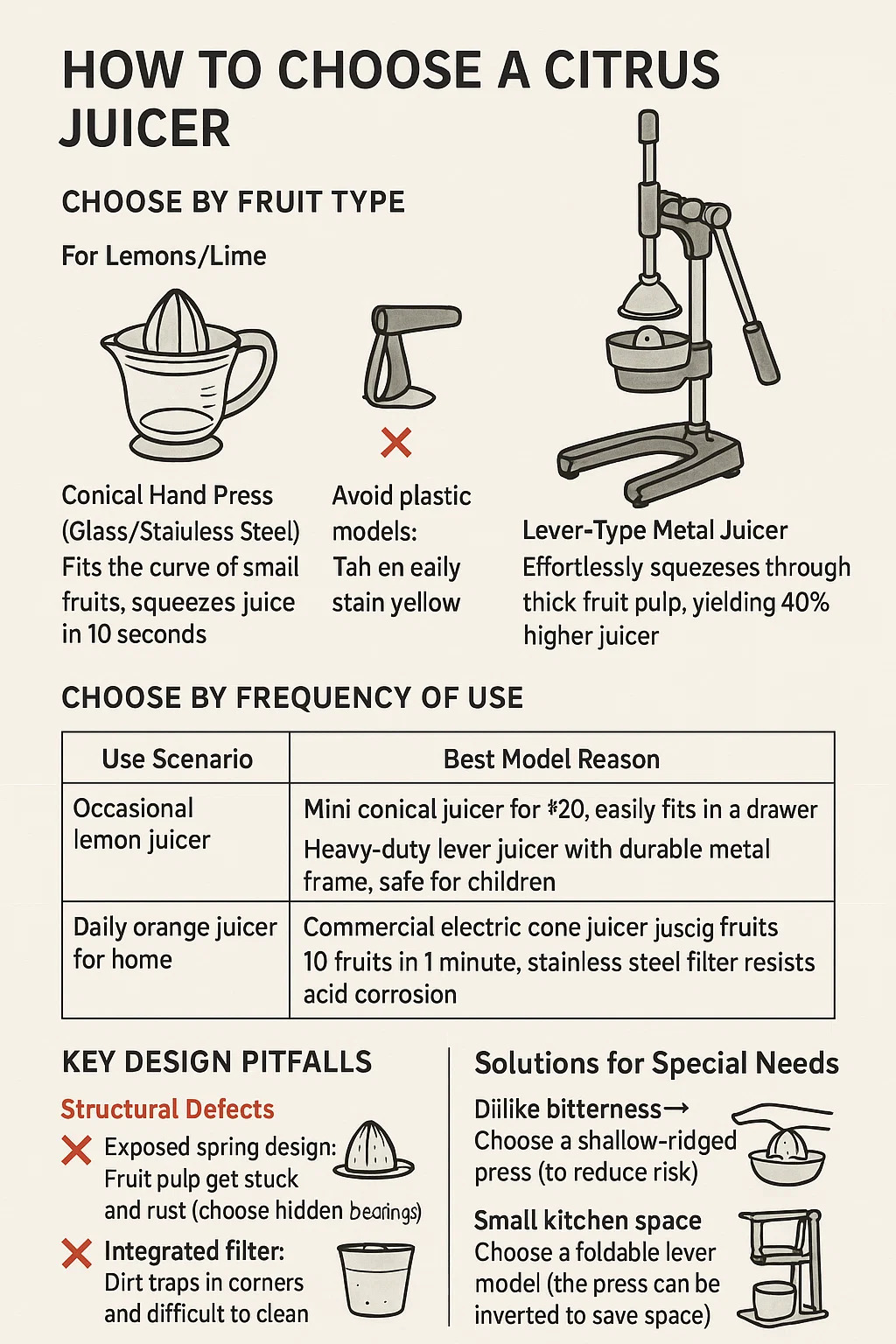The following are recommended citrus juicer types based on different needs, summarized based on real-world user experience:
Content
1. Choose by Fruit Type
For Lemons/Lime
Choose a Conical Hand Press (Glass/Stainless Steel):
Fits the curve of small fruits and squeezes juice in 10 seconds.
A top choice for bartenders, it keeps your hands clean.
*Avoid plastic models: They can easily stain yellow and crack oranges.
Main for oranges/grapefruits
Lever-Type Metal Juicer:
Effortlessly squeezes through thick fruit pulp, yielding 40% higher juice yield than hand juicers.
Squeeze five oranges for breakfast without getting your hands tired.
2. Choose by Frequency of Use
Use Scenario Best Model Reason
| Usage Scenario | Best Juicer Type | Key Reasons |
|---|---|---|
| Occasional use(e.g., 1-2 lemons/limes weekly) | Mini Handheld Cone Press | • Costs under $5• Fits in kitchen drawers• Instant cleanup |
| Daily family use(e.g., 5+ oranges/day) | Heavy-Duty Lever Press | • All-metal frame withstands years of use• Stable base allows kids to operate safely• Minimal effort required |
| Commercial settings(Juice bars/cafés) | Commercial Electric Press | • Processes 10+ citrus/minute• Stainless steel filter resists acidic corrosion• Dishwasher-safe parts |
3. Key Design Pitfalls
Structural Defects
*Exposed spring design: Fruit pulp gets stuck and rusts (choose hidden bearings).
*Integrated filter: Dirt traps in corners and is difficult to clean (choose a removable filter).
Material Mistaken Areas
*Transparent plastic press: Orange juice turns yellow due to carotene seepage.
*Thin-walled metal base: Grapefruits easily tip over when pressed.
4. Solutions for Special Needs
Dislike bitterness → Choose a shallow-ridged press (to reduce the risk of breaking the white skin).
Small kitchen space → Choose a foldable lever model (the press can be inverted to save space). Keep the pulp → Use a manual model without a filter and let the pulp fall directly into the cup.



 英语
英语 中文简体
中文简体














